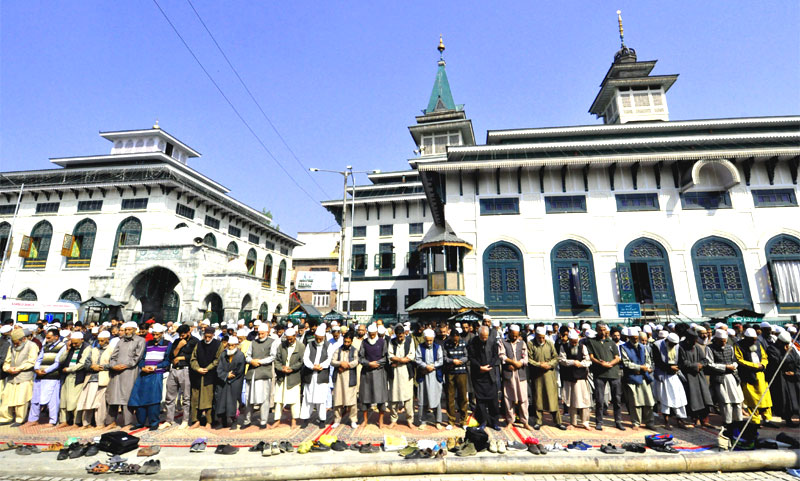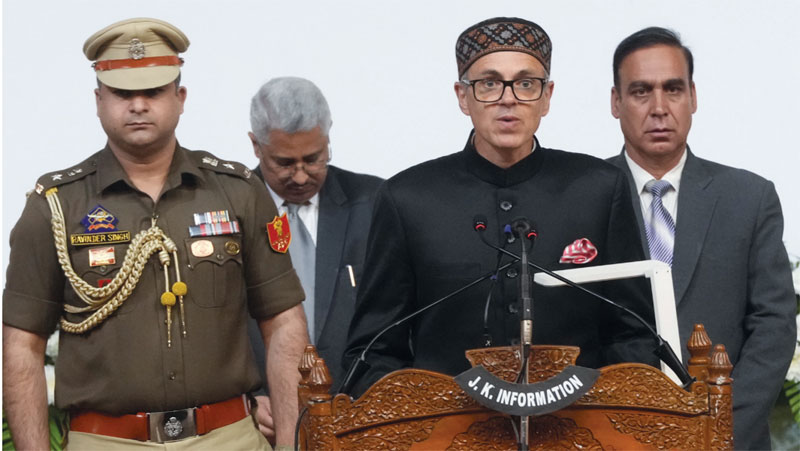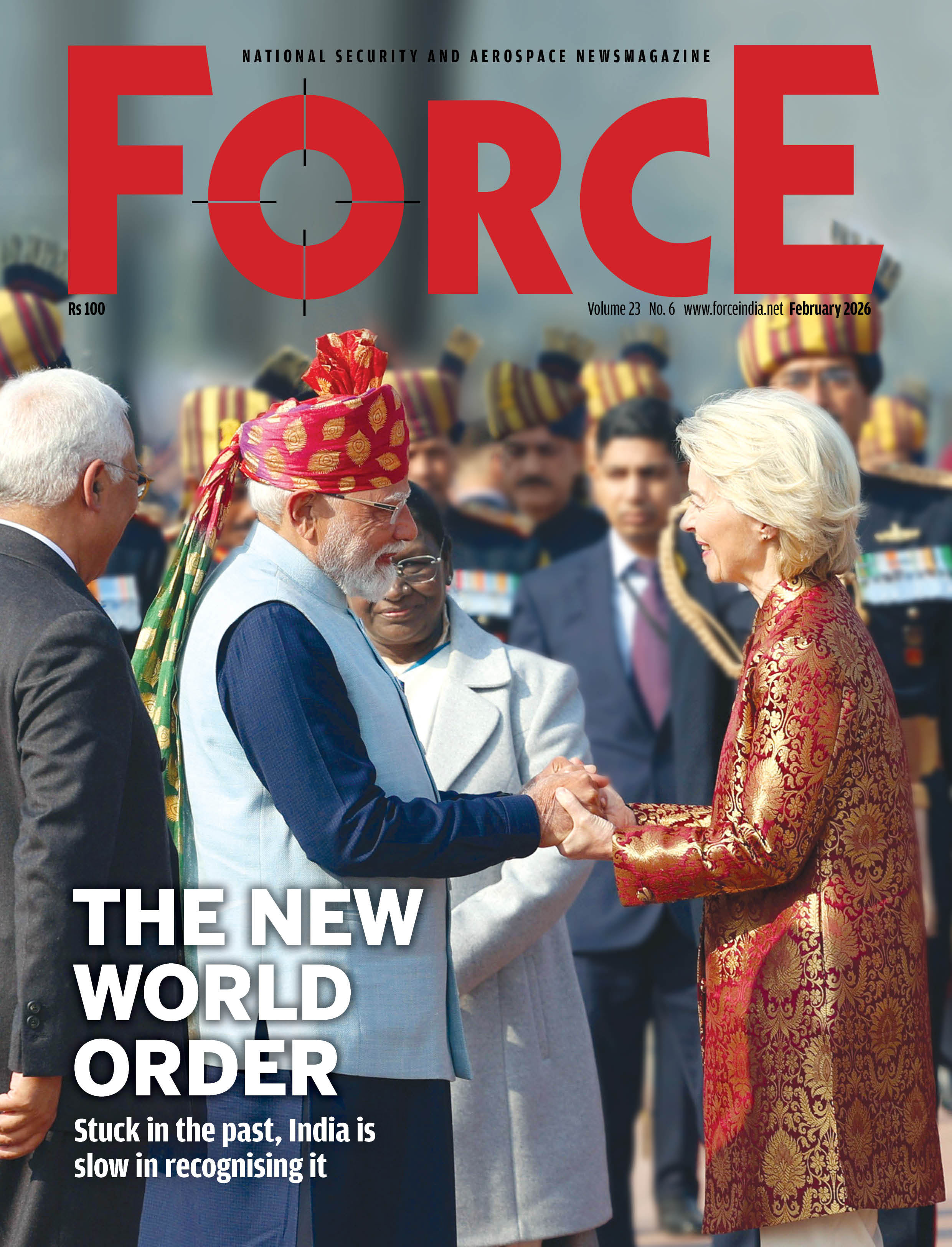War of Narratives
Ghazala Wahab
Srinagar, October 19, 4.30pm. The photographer and the taxi driver are engaged in an urgent conversation in Kashmiri language. The collective volume rise and the speakers start talking at the same time, turning the conversation into cacophony. For a few minutes, I ignore the noise, giving them space. Then I pick up words like highway, airport, Raj Bagh, Lal Chowk, and curiosity gets the better of politeness.

URS niversary of the Sufi saint Sheikh Abdul Qadir Jeelani in Khanyar, Srinagar
“What happened, what are you two talking about,” I ask with a smile.
“He is saying that the main roads are shut tomorrow because of the marathon,” the photographer says pointing to the driver, almost accusingly.
“What does that mean?” my voice is calm.
The driver replies, “You won’t be able to leave the hotel tomorrow morning.”
“What time will the roads open,” I am still calm.
“I don’t know,” replies the driver. “Maybe noon, maybe 3pm, or 6pm.”
“So, who will know?” I ask the driver. I sense a subtle rise in the volume.
He shrugs.
I look at the photographer. “Nobody knows. I asked three different policemen. All gave different opening times,” he says.
“We have to leave in the morning,” my voice rises gradually.
The photographer laughs nervously. “The government has invited athletes from around the world,” he says. “Omar (chief minister Omar Abdullah) is also going to run. The Governor will inaugurate it. A lot of VIPs are coming.”
Exasperated, I repeat my statement.
“We have to leave in the morning,” my voice now roughly matches theirs. We are one.
“This is what happens every time,” the photographer continues, nervousness increases both his volume and speed. “Whenever there is a government function they close down the roads for us. What if somebody has to go to the hospital? What if somebody has to go to the airport? What if…”
“I know it is very bad,” I interrupt him. “But we have to leave in the morning. How do we do that? Who can we find out from?”
“Don’t worry, we will find a way,” he laughs again nervously. “What do you say,” he pleads with the driver. The driver nods, “We will find a way.”
“Didn’t you know about this earlier? After all, the traffic advisory would have been issued a few days back.”
“Where do they tell us anything,” says the driver.
“That is the problem,” says the photographer. “They don’t issue any notice in advance. All information is given at the last minute, and even then, the locals are not informed. We only find out when the police stop us…”
“Please find out from some reliable person,” I interrupt.
By now it is already 5 in the evening. I look wistfully at Dal lake. The evening will not be what I had hoped for.
5.20pm. The photographer suddenly remembers a friend in the CID. He calls him. No response. After several attempts, the friend answers. At the end of a long conversation during which the friends did some catching up too, the CID fellow has no answer; only speculation about which roads would be shut and until what time. His final words: shift to a hotel close to the airport.
Eventually, putting my trust in Kashmiri optimism—we will find a way--, we return to the hotel. Around 6.30, the owner of the taxi agency gives an assurance call, “We will find a way.” And sure enough, a way was found the next morning. We walked a certain distance in the bylanes circumventing the main road to reach the stretch beyond the route of the marathon. The taxi driver was waiting on the other side, smiling broadly.
As newly sworn-in chief minister Omar Abdullah ran the marathon with a selection of athletes from India and abroad, we raced through the deserted roads of Srinagar in another part of the city towards the highway. Two roads. Two realities. Celebration in one part. Indifference in another.

Omar Abdullah taking oath as chief minister
A New Narrative
Within a few months of coming to power in 2014, Prime Minister Narendra Modi’s government declared that the only Kashmir issue which needed resolution was getting Pakistan Occupied Kashmir back. This not only denied the existence of the Kashmir problem since 1947, but also put a shroud on the process started by the first prime minister from the Bharatiya Janata Party, Atal Bihari Vajpayee.
Vajpayee apparently was very exercised about the Kashmir issue. So exercised that former chief of Indian spy agency Research and Analysis Wing (R&AW), A.S. Dulat wrote a 300-page book in 2015 chronicling Vajpayee’s efforts at resolving the Kashmir issue. According to him, Vajpayee once told him, ‘Iss gutthi ko suljhana hai’ (this gordian knot has to be cut). Thereafter, he spent a good part of his five-year tenure in normalising relations with Pakistan and mainstreaming the Separatists leaders (under the Mirwaiz Umar Farooq led All-Party Hurriyat Conference) in Kashmir by not only hosting them a number of times in Delhi, but also allo
Subscribe To Force
Fuel Fearless Journalism with Your Yearly Subscription
SUBSCRIBE NOW
We don’t tell you how to do your job…
But we put the environment in which you do your job in perspective, so that when you step out you do so with the complete picture.








 VIDEO
VIDEO